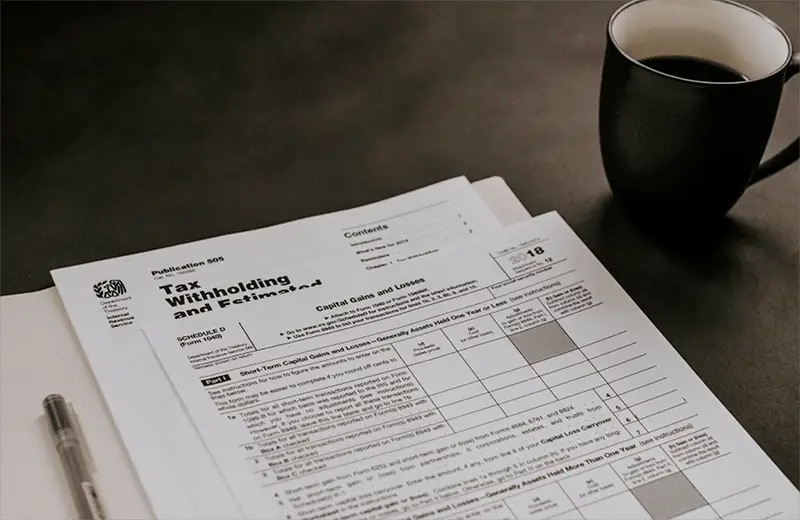Click here to get this post in PDF
The following article was originally published on figure.com on 3/7/19.

If home improvements are part of your 2019 plan, you may be surprised to hear that you can still deduct interest on home equity loans and lines of credit. Although tax laws have changed in recent years, home equity debt still has tax benefits that can effectively reduce the cost of home improvement projects. Learning how that deduction works can help when choosing the best way to pay.
Before 2018, deducting interest paid on home equity loans was relatively straightforward. But the 2017 Tax Cuts and Jobs Act (TCJA) changed things. Now, you can deduct interest costs on home equity debt only when you use the funds to buy, build, or make substantial home improvements.
Benefits of Home Improvement
Home improvement projects, which often qualify as substantial improvements, can potentially help you reduce your taxable income. But you get more than tax benefits, including,
Increased value
Renovations typically add to your home’s value. A smart way to borrow against home equity is to reinvest in your home. Doing so allows you to potentially sell your house at a higher price, providing funds to pay off debts or put toward your next property.
Better quality of life
You can also make your home more comfortable to live in, more efficient, and more useful for your needs. Financial benefits are always nice but spending time in a home you enjoy is also a worthy goal.
How the Deduction Works
To qualify for a deduction under current law, you must meet specific criteria. Speak with a tax professional to verify your eligibility before claiming a deduction.
Substantial improvements
You must use the proceeds of a home equity loan to buy, build, or substantially improve your home. Since you already own a home, you would presumably use funds to renovate your property.
Itemizing
The deduction is available to taxpayers who itemize using the Schedule A income tax form. For itemizing to make sense, you typically need deductible expenses sufficient to exceed the standard deduction. For 2019, the standard deduction is $24,400 for married filing jointly, $12,200 for individuals, and $18,350 for heads of household. Deductible expenses might include mortgage interest, charitable contributions, and other items.
Dollar limits
You can deduct interest on a maximum of $1,000,000 of home equity loan debt, if you purchased your home before 2017 and are married and filing jointly. If you purchased your home after the maximum amount is lower, $750,000 — including your purchase loan. Although you can borrow more than that, your ability to deduct will be limited.
Secured loan
To deduct interest, the loan should be secured by the same property that you are buying, building, or improving. As a result, using equity from your primary residence to buy a second home might not qualify for the deduction.
Loan Examples
Here are some basic examples to illustrate.
Example 1: Your current mortgage loan balance is $250,000, and you have enough equity to borrow more for substantial improvements. You borrow an additional $200,000 against your home and use the proceeds for home improvements. Because your total home equity debt is less than $750,000 and both loans are secured by the same home you’re improving, the interest could potentially be deductible.
Example 2: You have significant equity in your home, and you want to consolidate high-interest-rate credit card debts, as well as pay tuition costs for your child. You borrow $100,000 against your home to do so. However, because the loan proceeds did not go toward substantial improvements to your home, you most likely cannot deduct the interest on the loan.
Example 3: You own your primary residence free and clear. You want to buy an investment property, improve it, and rent it out. You borrow $300,000 for a down payment and operating expenses. However, because the investment property loan is secured by your primary residence (a different property), you most likely cannot deduct the interest on the loan. If the $300,000 loan was secured by the investment property (the same one you’re buying, building, or improving), the interest could potentially be deductible.
Evaluate the Pros and Cons
Paying for home improvements with a home equity loan may be a wise strategy, and tax laws still allow you to deduct interest expenses in some cases. Evaluate the pros and cons of different funding sources and speak with a tax professional to verify how the strategy might work in your situation.
Itemizing for your loan’s interest may provide additional opportunities for you to save on taxes. For example, if you make charitable contributions, those contributions may become tax-deductible when you itemize, making it affordable to give more than you were previously planning to give.
*You should consult a tax advisor regarding the deductibility of interest and charges to your Figure Home Equity Line.
You may also like: Applying for a personal loan through NBFC’s vs. Banks: Difference explained
